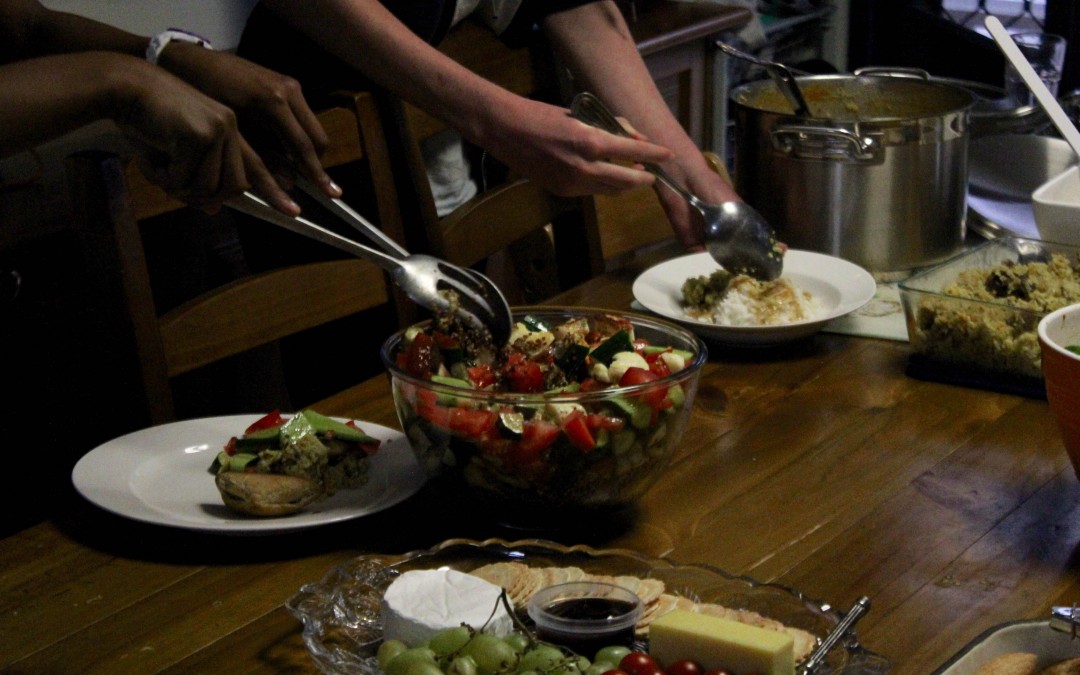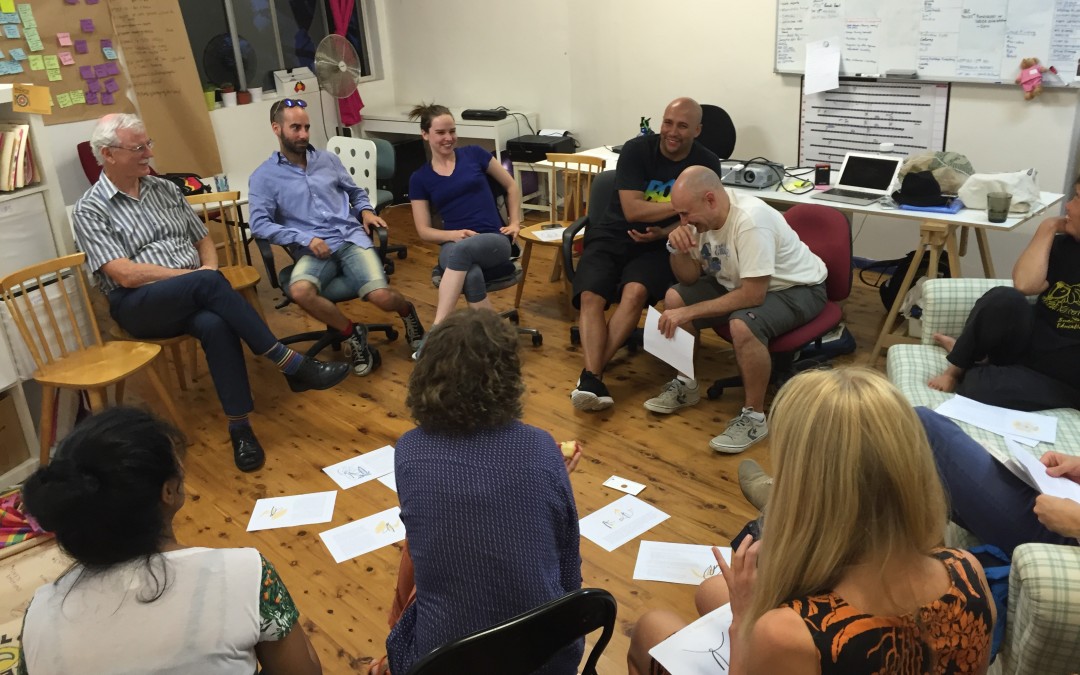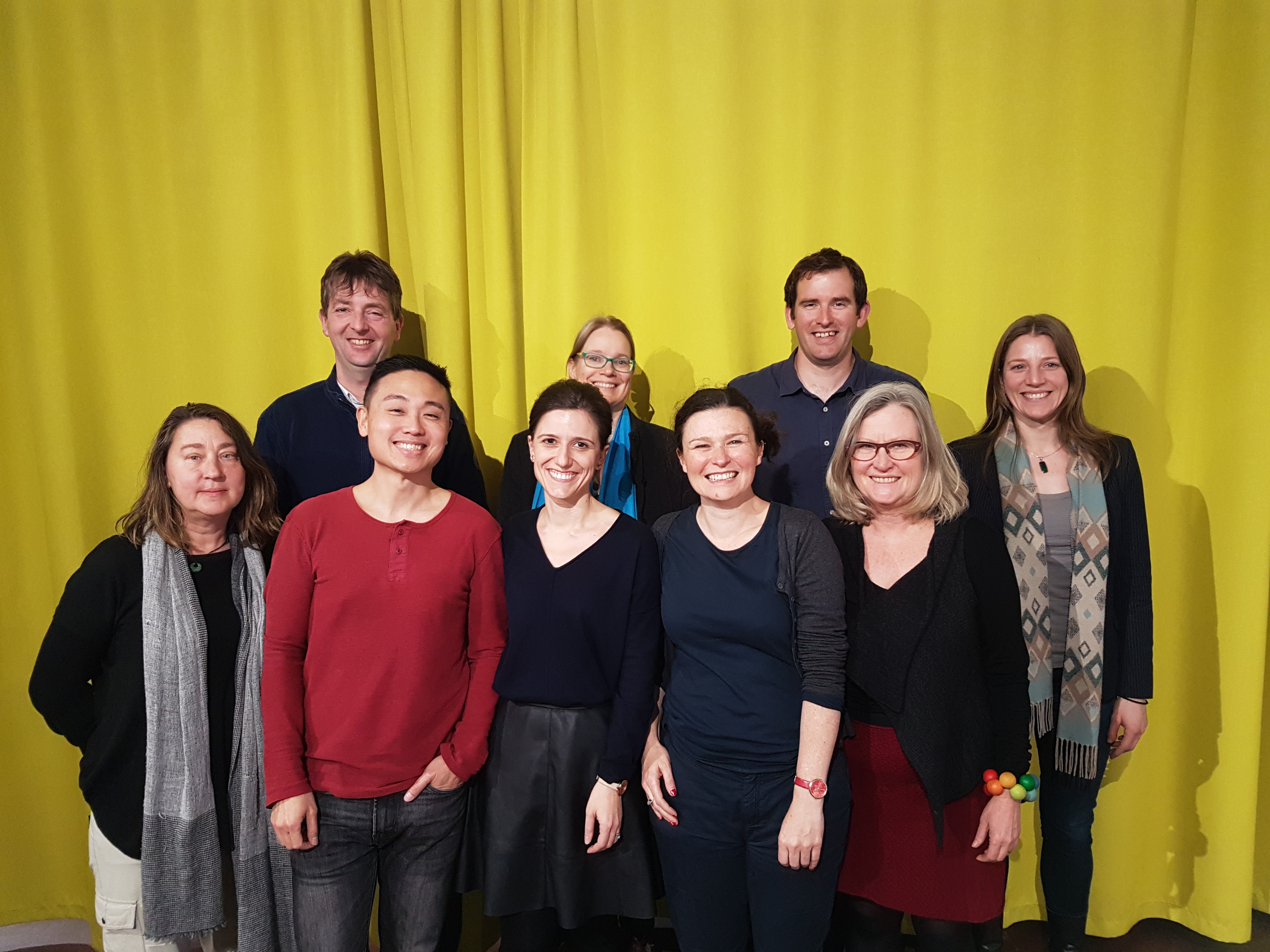How businesses can thrive
Thrivability in Business workshop – Melbourne University’s Thrive Research Hub, August 2017
Written by James Seow
I had the wonderful opportunity to attend the Thrivability in Business workshop organised by Melbourne University’s Thrive Research Hub in August 2017. Using the Eden Project as a case study, the workshop introduced participants to the Thrivability Competency Model, a framework of factors necessary for organisations to thrive. The workshop was led by Belina Raffy, Applied Improvisation and Thrivability thought-leader, and David Harland, Executive Director of the Eden Project and CEO of Eden Project International.
The workshop used Michelle Holliday’s “The DNA of Organisational Thrivability” model as a guide to considering an organisation’s capacity to thrive (https://ageofthrivability.com/). David related his experience at the Eden Project to this model.
Thrivability is defined as “the intention and practice of aligning organisations with how nature and people thrive.” The model invites us to look at an organisation from three perspectives: internal (Passion), external (Purpose) and the interface where the two connect and interact (Practical Play).
One exercise that unleashed my sense of humour and imagination is the “Evil/Good/Amazing” game. We started imagining how an “evil” café might run their business and what it would offer to their customers. Then, we discussed what a “good” café might do instead. The last stage involved us creating the vision for an “amazing” café – the ultimate goal of achieving good business profit, creating outstanding customer value and experience, respecting the environment, using sustainable resources and observing ethical and fair practices. Leaving the “amazing” stage at the end inspires ideas that we might not have thought of yet at the “good” stage.
Listening to fellow participants (I prefer to call them passionate change-makers) share their vision for more sustainable organisations, I gathered the following learning points that question an individual’s concept of organisational excellence.
- Conscious capitalism: Can businesses make money, respect the origins of their resources and do good for the community at the same time?
- Notice more, let go, use everything (by Robert Poynton): Instead of focusing on one target, can we be flexible and open to the opportunities and resources around us at any one time?
- The opposite of play is depression, not work: Make work fun!
- Biomimicry for solutions: Nature often inspires solutions. For example, what can a watering hole that brings animals in a desert together teach us about forming a community of like-minded people?
- Non-linear progress and processes: Think “out of the box” to look for solutions to existing problems. Reframe current issues and look at them from different angles. I recommend Edward De Bono’s book, Lateral Thinking, for this.
- Vision and “future truths” to build support and momentum: Sometimes, to convince prospective partners to collaborate with us, we have to behave as if we are already there. A “can-do” attitude and a strong conviction in one’s beliefs and goals help plans to materialise.
- No “but”; try “yes” and “and”: Instead of ignoring or negating what other people want and say, acknowledge their goals and build on that. Try saying, “YES, I see what you mean by this AND we can also….” Address your needs as well as the other person’s.
8. Who is in your team matters: I think this is the most important. Make sure you have the right people with the right attitude, potential and talent in your team. To paraphrase what David Harland, Executive Director of the Eden Project, said about his staff, if you were to cut in half all the people there, you would see “Eden” written inside every one of them. Get people who share the same values and goals with you on board.
Welcome to My Blog
Here is a basic blog layout with a right sidebar
Working with the International Student industry to enhance students’ experience in Australia: ISANA Conference 2015
The Welcome Dinner Project was excited to be invited to the 2015 ISANA International Education Association Conference in Melbourne. Held at the Pullman on the Park hotel in December, the conference attracts international student advisors, student groups, accommodation...

Henry’s Welcome Dinner Story (aged 11) …
At the end of November the Welcome Dinner Project went to Canterbury, Sydney, for a House Dinner. We gathered at Libby's place. Our host was fantastic and the guests all seemed rather relaxed. We shared some wonderful stories and food in a really warm atmosphere. We...
Our Victorian Coordinator was named Australian of the Day!
Our Victorian Coordinator Meagan Williams was named Australian of the Day on December 6th as part of a Commonwealth Bank and Australian of the Year campaign. The campaign, which highlights ordinary Australians doing interesting or unique things in their community, has...
Spreading welcome in Perth

joining the dots for Food-based Social Ventures in Australia
In partnership with our friends at The University of Technology in Sydney (specifically professors Elaine Swan and Rick Flowers) joiningthedots hosted a workshop for food-based social ventures. The purpose of the day was to enable people leading food based social...

U Lab – learning together
joiningthedots is excited to have hosted a "Hub" for the EdX U Lab, from September-November 2015 at our office space in Newtown (Sydney). We experienced an incredible time of learning and co-creating with other Sydney-siders taking part in the U-Lab course. We felt...


